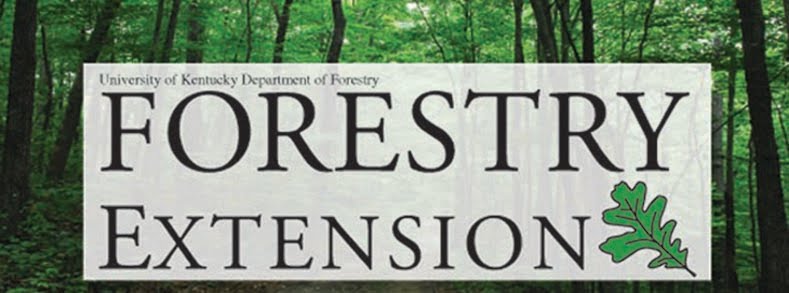 |
| Best Management Practices are required to be used on commercial timber harvests in Kentucky and many other states. |
May 11, 2011
Background
The recent decision in the NEDC vs. Brown by the Ninth Circuit US Court of Appeals (Court) has been widely distributed throughout the forestry community in the U.S. It functionally removes the silvicultural exemption from the Clean Water Act (CWA) and determines that forest roads that collect storm water runoff, channel it, and deliver it directly or indirectly to streams and rivers are a point source of pollution. This requires that logging operations that contain forest roads (see Kentucky Situation below) would be required to have a discharge permit. However, additional judges on the Court will be hearing (rehearing) this case and until that time the ruling will not take effect. Of course the Ninth District Court does not cover KY. However, the EPA has indicated that if the appeal is denied it will have far reaching effects. Reading between the lines, silvicultural activities or at least activities that create and/or use forest roads would potentially be required to have a discharge permit nationwide. While this clearly impacts logging it could also be interpreted to include woodland owners that have woods roads.
There are several means by which this permitting can be achieved. This includes a general permit that is developed by the state requiring the use of specific practices or requirements and this is probalby how this permitting would be handled. Until the general permit has been developed or if it is not handled this way each logger would need to obtain a permit for each logging job what would construct roads that would potentially impact water. The same could potentially be true for woodland owners. In either case the States water quality agency, in Kentucky the Kentucky Division of Water, would have jurisdiction over forest road issues.
Kentucky's Situation - Loggers and Woodland OwnersTo truly understand the potential impact of this ruling on Kentucky logging the definition of forest road should be understood. In Kentucky we differentiate between a haul road and skid trail. However, in situations where the skid trails are constructed with a dozer by cutting into a side slope, or where an old retired woods road is used as a skid trail or haul road these situations would be classified as a forest road by northwest standards (which is where the Ninth Circuit Court is located). Further it is not inconceivable that skid trails developed by significant skidder trafficking that creates disturbed mineral spoil over its entire width and that collects water would be considered a forest road. Since Kentucky logging is predominately ground skidding (which is true for much of the eastern U.S.) requiring the development of haul roads and constructed skid trails, and the majority (over 88 percent) of the logging jobs encounter streams or drainage channels (ephemeral channels) indicates that the majority of Kentucky’s loggers and logging jobs might required a discharge permit.
Also woodland owners that have forest roads that are trafficked would potentially be subject to the requirement for a discharge permit. This could occur whether you are actively using a road or are allowing a road to be used during a timber harvest for skidding or hauling.
Moving Forward ... or not?
It is prudent for Kentucky’s woodland owners, forest industry, and loggers to be attuned to the developments in this case. The outcome of the Court’s rehearing is uncertain at this time as are potential changes in EPA regulations, not to mention hearing by other federal district courts or the US Supreme Court. However, this is a significant enough case that preliminary discussions within the forestry community and between the forestry community and effected agencies such as the Division of Water would be justified.
To get more information on this issue Google "Ninth District Court of Appeals Forest Road Ruling" or other similar keys words on this issue and check out the following:
NEDC v. BROWN.pdf (the Ninth District Appeals Court Case)
Stormwater Discharges from Logging Roads Require Clean Water Act Permit. pdf (a good summary from a law firm out west)
By Jeff Stringer
Professor of Hardwood Silviculture and Forest Operations
University of Kentucky, Department of Forestry, Extension
Peer Reviewed, A. Stainback, May 11, 2011
